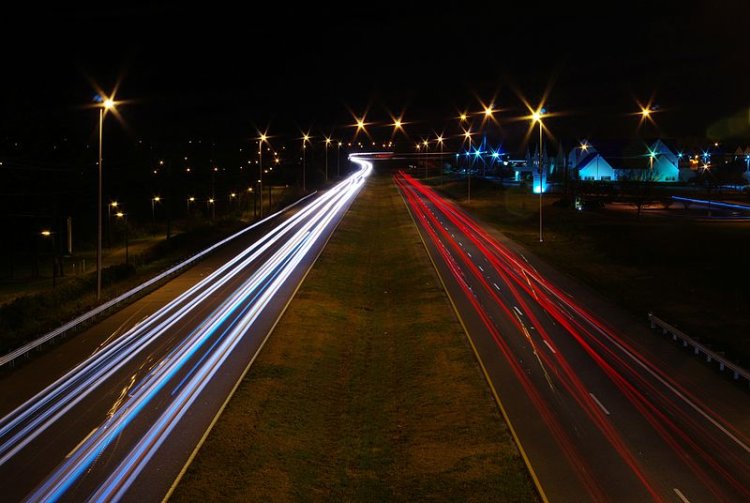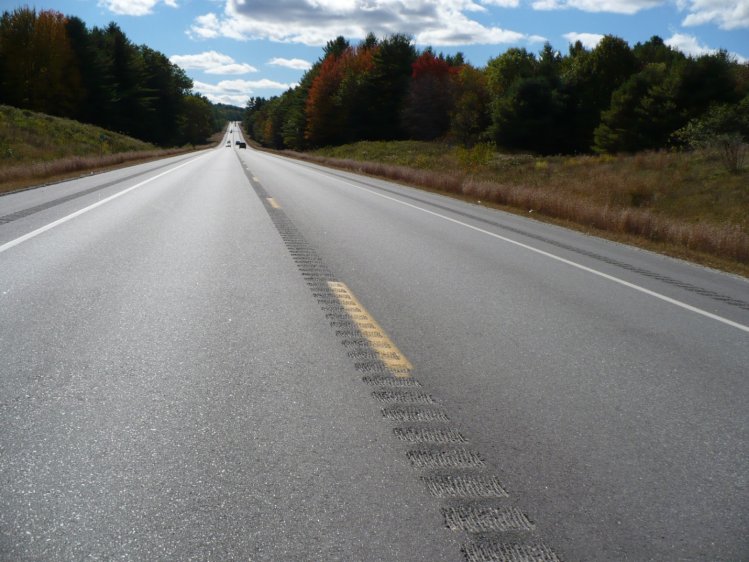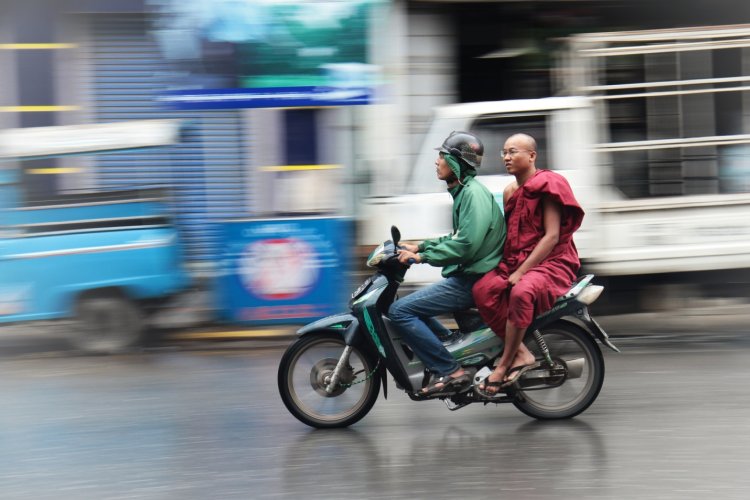
This is a guest post by Robert Argento.On most Tuesday nights, I meet Robert over a glass of wine and we talk about subjects ranging from economics to philosophy and many topics in between. Often these conversations get related to motorcycling. This is his first post on M-BY-M.
For more of Robert's writing see his own blog Marginal Returns to Zen.
Most people tend to think of karma as what goes around comes around. Basically, you have a cosmic ledger of deeds good and bad that decide what is coming to you in the future. Eventually the universe will punish you for your bad deeds and reward you for your good to balance the checkbook of the almighty. You could look at motorcycling this way, interpreting your experiences and those of other riders as a sort of morality play. For example, you could believe you suffered an off on a motorcycle because youre a careless person, even when the off resulted from an unpredictable mechanical failure. In this way you could take any success or failure and construct a narrative that places a value judgment on your character. Good things only happen to good riders and bad things only happen to bad riders the same way that good things only happen to good people and bad things only happen to bad people. If a bad thing happened to you, then it must be punishment for some personal failing.

[Source: Wikimedia Commons]
There are people who do not see karma that way. Many of the people who originally began using the word karma did not see karma that way. One way of interpreting the teachings around karma of the old Buddhist masters is to think of the past and the future as only existing in your mind. The past is a mental reconstruction from an imperfect memory and the future is a projection created by your imagination. Thinking this way, the past doesnt define you and the future doesnt have to constrain you. All that baggage is in your head and you have the power to manage what is in your head. If you begin from this premise, then you could conclude that you are not entitled to effectively navigate the impossible corner at 90 miles-per-hour because youve been riding for two decades no more than you are doomed to never make a right-handed turn in one lane because you have yet to do so successfully. These things do not define how well you will do. What defines how well you will do is what you choose to do right here, right now. The moment youre living is all that matters; everything else is just rumble strips in your head.

[Source: Wikimedia Commons]
Now, the past can give you guidance on which choices to make. If you did not like the outcome of a past choice, then make a new choice. If the past is not helping you make a choice, then stop dwelling on the past. The same can be said of your imagination of the future. If the past and the future are constructs of the mind, and the mind is a tool, then it should only be applied when it serves a purpose. A screwdriver, like a past experience, can be useful when a screw needs to betightened or loosened, but most do not hesitate to put the screwdriver down when faced with a nail, unless of course you have a few loose screws yourself.
I think on some level, that is what draws us to riding. In the discipline of motorcycling, how well or poorly you rode yesterday need not affect how you ride today. How well or poorly you ride tomorrow need not concern you. Dwelling on how you rode at other times only takes attention that you need to safely and effectively operate the motorcycle, making your riding worse and placing you in avoidable danger. Dwelling on the stresses of life outside the motorcycle while you are riding isnt exactly doing you any favors, either. Not only that, but much of the enjoyment of riding, at least for me, comes from letting the performance of riding fully consume your consciousness. To perform better on a bike, you must release the stresses and fears that prevent you from enjoying the moments of your life. To learn to let go and engage in the here and now on the bike builds a skill that you can apply whenever you feel overwhelmed with fear of what lies ahead and regret of what came before. There is something therapeutic to this. In this way, to ride is to meditate.

[Source: Stefan Munder on Flickr]


You must be a member of this group to post comments.
Please see the top of the page to join.